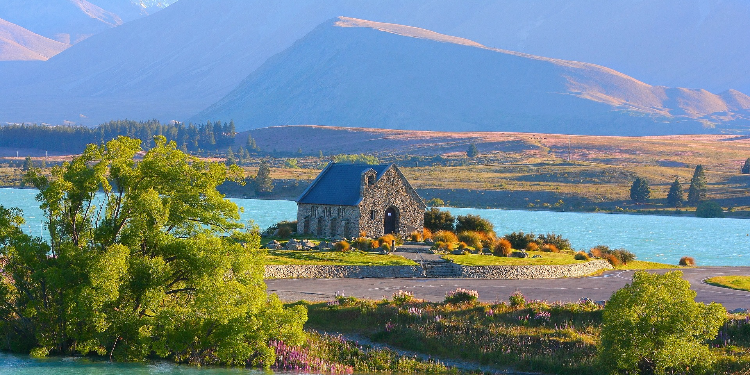
From April 2021, international students will be allowed to enter New Zealand. The growing demand led the New Zealand government to set up a pilot project to welcome them in several stages. What makes New Zealand such a great place to move to amidst the pandemic?
Quality higher education
New Zealand can boast of having one of the world's best education systems, with many world-famous universities, colleges, polytechnics and institutions. The University of Auckland, the University of Otago, the Auckland University of Technology and the University of Canterbury host the most significant international students population. Besides, by graduating from one of its universities, you stand more chances of being hired in New Zealand after your studies. In fact, one of the reasons why the country is reopening its borders to international students is to respond to the skilled labour shortage in several sectors. It's worth noting that in 2018 New Zealand hosted more than 117,200 international students compared to nearly one thousand this year. However, to qualify for a visa, international students who wish to move to New Zealand are now required to prove that they have a sum of NZ $ 20,000 to support themselves, compared to NZ $ 15,000 before the crisis.
Career prospects are abundant
As with most countries, the global health crisis has had a significant impact on New Zealand's labour market. The unemployment rate currently stands at 6.2%. Still, this is a 3.2% drop compared to the last quarter of 2020. New Zealand authorities are expecting a 5.4% drop by 2022 with the contribution of local and foreign labour. A 1.8% rise in the annual employment growth rate is also expected after 2021, once the COVID-19 crisis is over. New Zealand regularly updates its skills shortage list to meet market demand. Overall, the country will need at least 47,000 additional workers every year. Today, opportunities exist in various sectors, including ICT, engineering, health, construction, business services, finance and science, etc. Foreign professionals who have skills that are not available locally can apply for a job and a visa while waiting for borders to reopen. Besides, having a New Zealand work visa paves the way for permanent residence.
More expat rights
Permanent residents in New Zealand do not need new permits or visas to re-enter New Zealand when travelling abroad, unlike temporary workers. Bu as a permanent resident, you can live, study or work in the country for an indefinite period. Also, permanent residency gives access to healthcare and public education and the right to vote as New Zealand citizens.
Gender parity
New Zealand is one of the few countries in the world to give significant importance to gender parity. So it's fair enough that it ranks in the global top 10 countries for equal pay according to the latest World Economic Forum report. Today, the gender pay gap stands at 9%, but this figure varies depending on the industry. Still, women are promoted at all levels. Apart from Jacinda Ardern who became the Kiwi Prime Minister in 2017, women have also occupied the seats of Governor-General and Chief Justice. So if you are looking to boost your career in New Zealand or to start a business there, rest assured that you will also benefit from equal opportunities.
Great quality of life
Thanks to a short work week, especially with companies that recently introduced the four days work week, and great flexibility, expats in New Zealand enjoy a better work-life balance compared to other countries. So they can enjoy an excellent quality of life, between their family and social life and the many landscapes and activities available. The country has a subtropical climate that is pleasant all year round, whether you want to get a suntan at the beach, go for a mountain hike or biking, go fishing in a river or a lake, or relax one of the beautiful parks and gardens. New Zealand can also boast of having unparalleled cuisine, combining Western and Maori cultures with fresh and seasonal ingredients. So this can be an excellent opportunity to start eating local.
The cost of living in New Zealand is lower compared to many Western countries. For example, rent and property prices are lower in New Zealand cities compared to Europe. So you can save money while enjoying a high standard of living. The high-quality healthcare system is subsidized by the government. So you can get universal healthcare once you become a permanent resident. Still, New Zealand's healthcare system remains accessible and affordable to non-resident foreigners having health insurance.
For new parents, New Zealand offers generous parental leaves. In 2020, the number of parental leaves rose from 22 to 26 weeks. So this gives parents more time to look after their children. Besides, since New Zealand is an English-speaking country, you won't find it hard to adapt if you're a native English-speaker. New Zealand is home to a large expat community coming from the US, Canada, France, China and India, etc. All these nationalities contribute to making New Zealand a multicultural, harmonious and safe country.



















